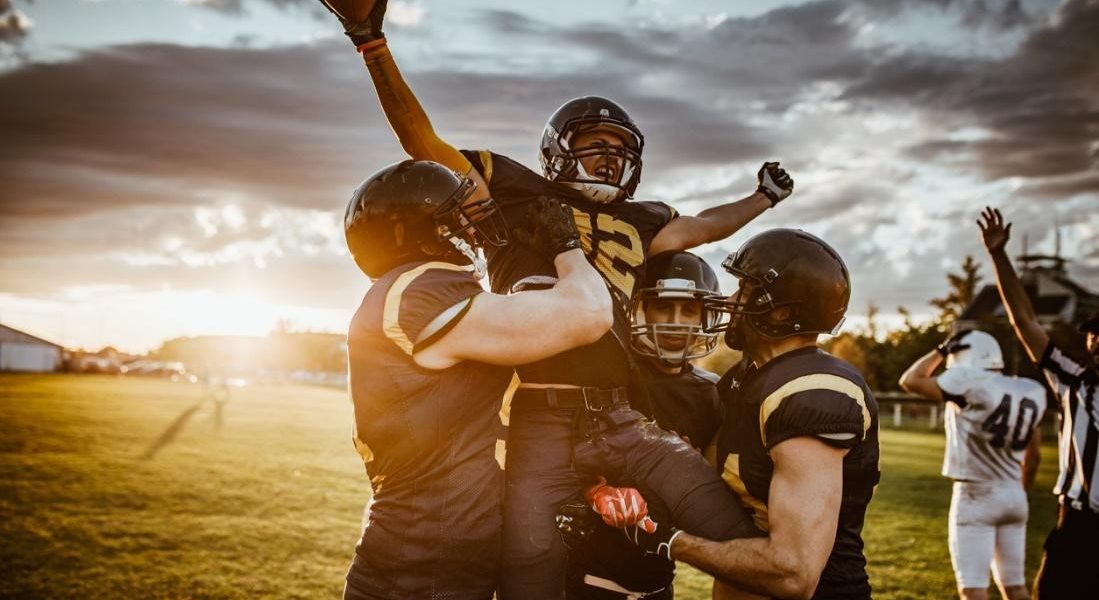Sports journalism occupies an essential role in our media landscape, imparting knowledge and fostering awareness across a vast array of events from local school matches to international competitions like the World Cup and Olympics. It goes beyond merely conveying sports scores and stats, having an influential role in the formation of public opinion and the propagation of cultural values.
At its foundation, sports journalism acts as a form of communication that grips the attention of readers by delivering stories that enthrall and motivate. These narratives often convey important socio-economic and political perspectives, leaving a lasting impact on both individuals and societies alike. People learn to identify with their idols, absorb their values, and take action based upon their counsel – taking this form of entertainment much further than just providing amusement.
This article delves into the role of sports journalism in shaping popular sentiment and influencing culture. Here we will analyze its history, effects on cultures and people, moral implications, and changes propelled by the digital age. By the end of it, readers should have a deeper appreciation for the power of sports journalism to promote meaningful transformation and improve lives.
Origins of sports journalism
Sports journalism has a long and varied history, with roots stretching as far back as the 1700s. The early days of sports news coverage focused largely on horse racing and boxing matches but grew exponentially in popularity during the late 19th century with the proliferation of professional sports leagues.
In the United States, the emergence of baseball in the mid-1800s marked a major turning point for sports journalism, as newspapers began to dedicate entire sections to sports coverage – creating its own industry. Similarly, across Europe, the rapid growth of football (soccer) created an environment for unparalleled sports journalism, starting with the first reported match in 1871 published in The Glasgow Herald. Since then, other sports such as cricket, rugby, and tennis have seen similar increases in coverage.
Evolution of sports journalism over the years
Throughout the years, sports journalism has grown far beyond mere score sheets and match reports. It has become an influential platform of opinion, commentary, and analysis on matters linked to sports. Sports journalists are now not only relaying occurrences in the game, but they are also exploring stories and dispensing newsworthy information.
The dawn of the 20th century brought about major changes in technology, revolutionizing sports journalism as we know it. Radio and television airwaves enabled live broadcasts of numerous sporting events for mass consumption, making sports journalism a fundamental component of these transmissions. The introduction of the internet and social networking have provided even greater strides, yielding real-time access to news, perspectives, and analysis.
Examples of landmark moments in sports journalism
Sports journalism has had many defining moments throughout history, shaping public opinion and influencing cultural values. Notable examples include the first modern Olympic Games in Athens, Greece in 1896, when extensive coverage from sports journalists established the profession as a legitimate and respected field. Moreover, in 1947 when Jackie Robinson broke the color barrier in Major League Baseball, sports journalists offered pivotal support for the civil rights movement by highlighting his story.
In 1952, Bernard Malamud’s novel The Natural further revolutionized the world of sports journalism. Captivating readers with its thrilling account of a baseball player’s rise to fame, the literary classic quickly gained recognition as a paragon of sporting literature. By doing so, it paved the way for a new era of passionate and insightful sports writing.
The 1960 Winter Olympics in Squaw Valley, California represented another major point in sports journalism, with live broadcasting via satellite allowing millions to view the games in real-time. Similarly, the 1972 Munich Olympics were profoundly significant when 11 members of the Israeli Olympic team were taken hostage and eventually killed. Sports journalists provided powerful coverage of the ensuing tragedy, promoting understanding of terrorism’s potential dangers to both sports and society.
The 1980 “Miracle on Ice” at the Winter Olympics in Lake Placid, New York saw the United States men’s hockey team achieve a remarkable victory against the heavily-favored Soviet Union – a feat that remains one of the most iconic upsets in sports history and was widely reported by journalists across the globe.
Fast-forward 14 years, and O.J. Simpson’s now-famous white Ford Bronco police chase captivated the world, with sports media taking center stage when it came to covering this gripping and wildly-unpredictable narrative.
And more recently, the 2015 “Deflategate” scandal involving the New England Patriots and their quarterback Tom Brady provided an arena for sports journalism to spark fierce debates regarding ethics and the meaning of sports within American culture.
Evidently, these historically significant moments show how integral sports journalism has become in propagating important conversations in the society.
How sports journalism influences public opinion
Sports journalism has the power to profoundly shape our collective perspective. By reporting on sports events, athletes, teams, and related issues, it can alter how we view individual athletes, leagues, and even entire sports.
As gatekeepers of information, sports journalists carefully select which stories to cover and how to present them. Their coverage can have a powerful effect on public opinion about the behavior of athletes and coaches, as well as larger organizations like entire leagues. For example, a piece detailing the philanthropic endeavors of an athlete could create an overwhelmingly positive impression of that person within the community.
In addition, sports journalism can make a real impact on social and political discourse. When high-profile athletes use their platform to speak out on matters of public interest, such as racial inequality or climate change, sports journalists are in a unique position to amplify those messages, significantly influencing public opinion on these issues.
The power of sports journalism in shaping narratives and perspectives
Sports journalism possesses the capacity to influence the way we perceive and discuss sports-related topics. An encouraging article on a team or athlete can cultivate an uplifting narrative, igniting people’s passion for the cause and bolstering support. Conversely, stories that cast light on controversial issues in sports – including doping and corruption – create a dim outlook, disillusioning fans and eroding faith in the sport’s credibility.
Impact of sports journalism on public opinion in the past
Sports journalism has time and time again been an integral force in social progress. Muhammad Ali’s influential commitment to civil rights during the turbulent 1960s and 70s was magnified by a comprehensive influx of press coverage, echoing his powerful message across the globe. His advocacy helped to raise awareness to the cause and galvanized public support, laying the groundwork for meaningful progress.
In the wake of George Floyd’s tragic death, the sports world joined forces to heighten awareness of racial injustice. Major athletes and prominent journalists became advocates for social change, amplifying calls for justice through powerful statements which resonated across the globe. The Black Lives Matter movement united individuals from diverse backgrounds in their shared commitment to ensuring equality and equity for all. 2020 served as a watershed moment in history, emphasizing the radical potential of collective action in pushing forward much-needed conversations surrounding systemic racism.
How sports journalism can shape cultural values
Sports journalism has a powerful impact on societal values. By spotlighting the conduct of athletes and their treatment in the media, sports journalists can shape public attitudes towards sport and its related issues.
For example, when sportscasters recognize the achievements of female and minority athletes, it not only challenges ingrained stereotypes but also encourages the spread of inclusivity and appreciation for diversity. Through carefully-crafted reporting, sports journalism can cultivate cultural norms that reverberate throughout our society.
Sports journalism has the power to shape cultural values by propagating certain philosophies. Take extreme sports, for example: coverage of this genre encourages risk-taking and exploration. Conversely, a focus on traditional team sports may emphasize the importance of cooperation and resilience.
Sports journalism is not without its flaws. Focusing on sensationalist headlines or adopting a disparaging tone in evaluation and criticism can unfortunately erode the values of sportsmanship and fair play. Such approaches may encourage an environment of cutthroat rivalry, straying from the core values of sportsmanship.
Sports journalism as a creator of heroes and role models
Sports journalists wield immense influence in the world of sports, using their platform to promote positive role models and heroes. Promoting the successes of athletes and teams, they build a positive narrative that encourages fans to view these figures as symbols of greatness. By sharing their stories, they stimulate others to adopt the values and principles that have enabled these champions to excel.
Sports journalism has vast potential to motivate and uplift its audience. However, when handled carelessly, it risks having a detrimental effect on society. By highlighting and sensationalizing athletes’ negative actions, such as drug use and misconduct, journalists risk instilling an unhealthy attitude in fans and athletes, diluting the positive messages that should be at the core of the sports world.
Instances when sports journalism influenced cultural values
Sports journalism has long played an integral role in shaping public opinion and furthering the national narrative. Through incisive reporting and analysis, it reflects the values and aspirations of a society and unites disparate communities under one common banner. During the Cold War, for instance, American outlets championed their athletes’ successes, advancing a narrative of U.S. dominance in sports that cemented notions of American exceptionalism.
At the 2018 Winter Olympics in Pyeongchang, sports journalists rose to the challenge of raising awareness of the importance of diversity and inclusion. Through powerful storytelling, they brought attention to the remarkable moment in which North and South Korean athletes marched together under a unified flag — a triumphant demonstration of peace and unity between nations.
Criticisms of the influence of sports journalism on cultural values
Sports journalism offers an invaluable window into modern culture, yet it is not without its drawbacks. Critics contend that it can perpetuate negative attitudes toward violence and aggression in sports, especially for impressionable audiences who may look up to athletes as role models. Content that highlights violent or aggressive behavior on the pitch may imply that these behaviors are socially acceptable or even desirable, perpetuating a damaging mindset amongst younger generations.
Some commentators have also suggested that sports journalism can be prone to oversimplifying athletes, creating a false sense of perfection. This distortion can lead to an expectation for athletes to win at any cost, perpetuating a culture which may bring harm and discredit to the sport.
Additionally, sports journalism has been called out for failing to adequately cover a variety of disciplines and events, thereby reinforcing gender, racial, and class biases in the sports world. This unequal representation can lead to a narrow understanding of sporting activities and can hinder the development of athletes and sports that are underrepresented in public dialogue.
Lastly, sports journalism is no stranger to commercialization, leading to an emphasis on product promotion and sponsorship rather than reporting on the sport or athletes themselves. This can cultivate a consumer-oriented culture that puts monetary gain before ideals such as fairness and sportsmanship.
Ethics in sports journalism
As an integral part of sports journalism, ethics play a crucial role in maintaining high standards of accuracy, fairness, and accountability. From severely damaging the standing of athletes to shattering public confidence in the profession, ethical misconduct can bring about serious repercussions for those involved in sports journalism. It is therefore essential that journalists hold themselves to the highest ethical standards.
Sports journalism requires careful consideration of ethical issues. Accuracy, fairness, privacy, and conflicts of interest must all be taken into account in order to ensure integrity in the reporting process. Journalists must remain vigilant to avoid sensationalized news stories and biased coverage based on athletes’ race, gender, or ethnicity. Furthermore, journalists should be aware of any potential conflict of interest that could influence their reporting, such as having personal ties to an athlete or team being covered. By upholding these standards, sports journalists can maintain a high level of journalistic integrity.
Examples of ethical lapses in sports journalism
In recent years, the world of sports journalism has been rocked by incidents of unethical conduct. Take the case of NFL player Colin Kaepernick and his protest against police brutality and racial injustice, for example. Rather than objectively addressing the main themes of his activism, many journalists instead sought to discredit him, falsely painting him as unpatriotic and disrespectful toward the American flag. This portrayal was a stark mischaracterization of the man and his cause.
The Duke Lacrosse scandal stirred up an immense amount of public outcry and debate. Without sufficient proof, certain media sources prematurely published articles alleging guilt. As a result, three college students were unfairly maligned, enduring the consequences of the press’ hasty narrative construction. Unfortunately, this case serves as a sobering reminder of the destructiveness caused by irresponsible news reporting – both to personal reputations and to overall quality of life.
Sports journalism often runs the risk of being influenced by conflicts of interest. In these cases, journalists may have a financial incentive to favor certain athletes or teams over others when reporting the news. This type of bias can have a damaging impact, eroding public trust and prompting questions about the objectivity and accuracy of their reporting.
Sports journalism in the digital age
Digital technology has revolutionized sports journalism, creating a seismic shift in the way we consume and discuss the world of sport. From enabling rapid coverage of breaking news to providing real-time access to live events, digital advancements have enabled unprecedented levels of engagement and analysis.
Real-time reporting allows journalists to provide instant updates on events as they occur, while social media platforms such as Twitter, Facebook, and Instagram permit them to more effectively share news and interact with their audiences. Additionally, advances in data collection and analysis offer opportunities to explore deeper insights into events and teams. Multimedia elements like photos, videos, and interactive graphics add depth to stories, and the ubiquity of mobile devices has made it easier for fans to access sports content on the go. All these factors are shaping the future of sports journalism, creating an ever-evolving dynamic that will continue to expand our understanding of sports.
An advanced degree in journalism can help
For those eager to pursue a career in sports journalism, an online masters in journalism from a credible institution, such as St. Bonaventure University, provides invaluable insight and training. Curricula often include multimedia storytelling, reporting techniques, and topics related to media law. Moreover, an online program grants the necessary flexibility for students juggling other obligations such as work or family. With the proper education and qualifications, sports journalists can make a positive impact on public opinion and collective values.
Final word
Sports journalism wields tremendous power, not only in forming public opinion and influencing cultural values but also in its capacity for positive or negative impacts. Throughout its history, the practice of sports journalism has evolved with the times, and today digital technology plays an integral role in its form and content. Aspiring sports journalists must devote themselves to responsible reporting practices, shaped by ethical principles, in order to make meaningful contributions to the field. An online master’s in journalism can provide the knowledge and skills necessary to succeed as a sports journalist and navigate this dynamic in an ever-changing space.










